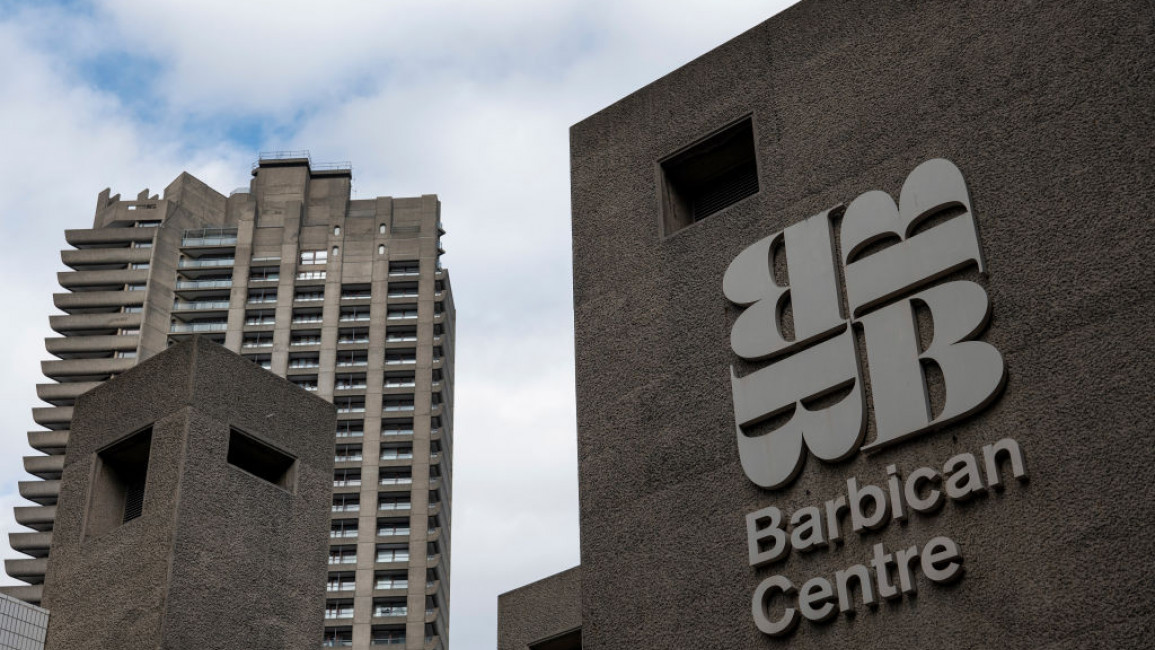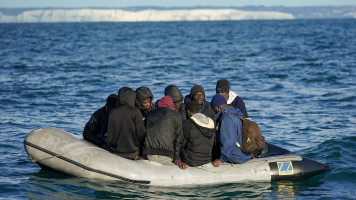London arts venue Barbican Centre 'deeply sorry' after accusations of anti-Palestine censorship
One of London's most prominent arts and culture venues apologised on Tuesday after its instructions for and cancellation of an event were branded "anti-Palestinian censorship".
The Barbican Centre was set to host a talk on 15 June featuring a co-founder of Radio Alhara, a radio station based in the Palestinian city of Bethlehem, on what the venue described as "radical possibilities of radio... exploring how broadcasting can be used as a tool of subversion".
But the event was abruptly cancelled minutes after it began, due to what the venue called "technical difficulties".
A screenshot of a message posted by organisations working in collaboration with Radio Alhara purportedly showed a message sent by a Barbican staff member hours before the event was due to begin. It read: "I also wanted to say in terms of content would be able to avoid talking about free palestine [sic] at length its just to further safeguard the audience."
The screenshot message and news of the event's cancellation sparked outrage on social media, with some calling the move "institutional censorship" and a clear example of "cancel culture".
In an apology statement released Tuesday, the venue said it was "deeply sorry" and had committed "a serious error of judgement".
"In haste, shortly before the event was due to begin, the Barbican shared an editorial note with the speaker asking him to avoid spending too much time discussing free Palestine. The situation was compounded by a technical failure with the live broadcast, which unfortunately brought the event to an abrupt close," the venue said.
"This intervention by the Barbican relating to the content of the talk was unacceptable and a serious error of judgement, for which we are deeply sorry. As an organisation we believe in the importance of free speech, dialogue and debate - giving a platform to the experiences and views of individuals and groups involved in free Palestine is part of this commitment.
"We have since spoken and apologised to those involved, and agreed for the talk to be rescheduled in the near future."
|
Barbican's creative partners - including Resolve Collective, a London-based design group whose 'them's the breaks' exhibition was playing host to the talk - said in a statement posted on social media that what happened with the Radio Alhara talk was one of a series of missteps by the venue.
It noted a number of "shameful incidents" during the run of its exhibition at the gallery, including "hostility towards close family and friends at the exhibition opening; heavy-handed and overly suspicious treatment when entering our exhibition with a group of Black and Brown artists; and being publicly deprecated and infantilised whilst ushered out of our exhibition space".
The collective said the incidents "prompted our decision to leave the gallery prematurely".
It did, however, say it had received a "sincere apology" from the venue after the Radio Alhara incident.
The Barbican courted controversy earlier this year when it partnered with the Israeli embassy in the UK to host an orchestral concert.
It defended that decision at the time, saying it regularly hosted events with support from governments.


![Tourists and expatriates will be able to visit all Gulf countries with the same visa [Getty]](/sites/default/files/styles/image_212x120/public/2024-05/GettyImages-2063140119.jpg?h=199d8c1f&itok=Lm9EP8Z9)

